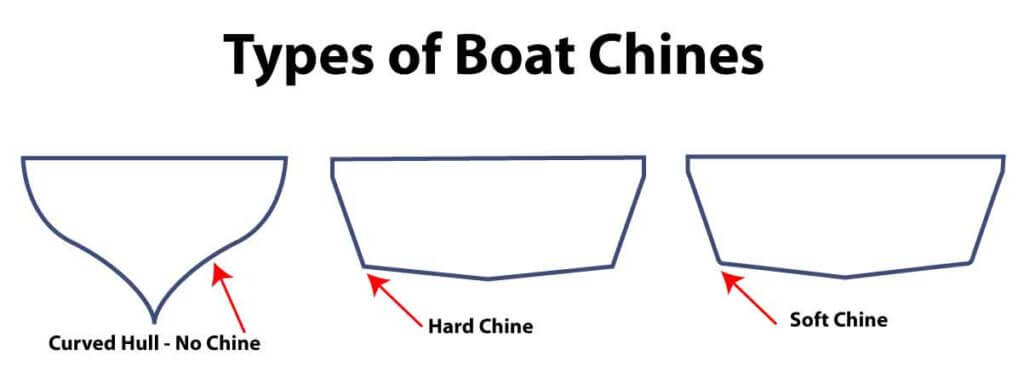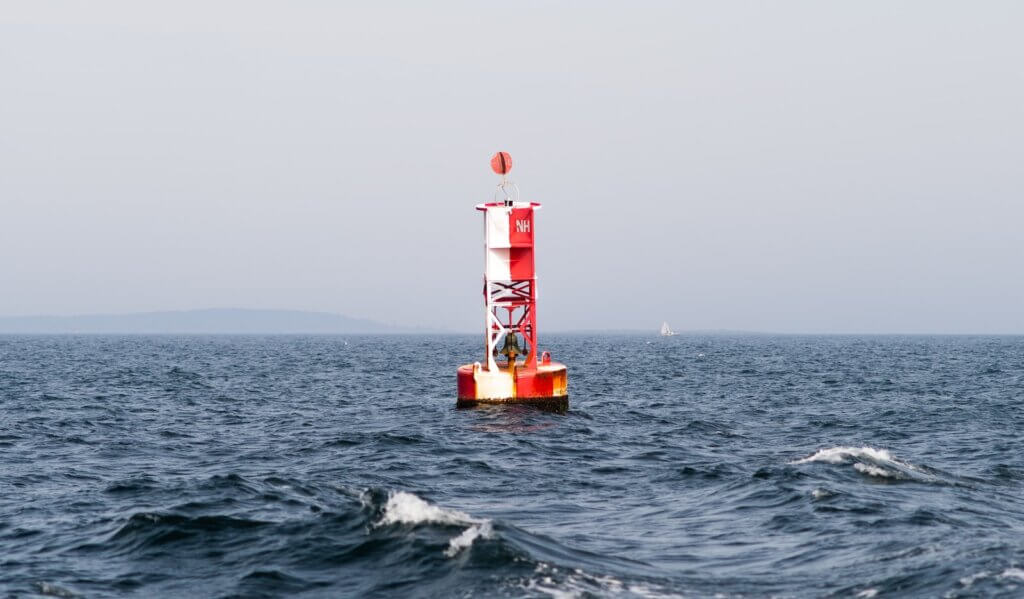Want to know the true value of your boat? Look no further than the Boat Kelley Blue Book. From factors influencing its worth to alternatives, we have you covered.
What is a Boat Kelley Blue Book?
Definition and Purpose
Have you ever wondered how much your boat is worth? Whether you’re looking to buy or sell a boat, it’s important to have an accurate understanding of its value. That’s where the Boat Kelley Blue Book comes in.
The Boat Kelley Blue Book is a trusted resource that provides boat owners, buyers, and sellers with valuable information about the estimated value of a boat. It serves as a comprehensive guide, offering insights into various factors that can impact a boat’s worth.
How Does It Work?
You might be wondering how the Boat Kelley Blue Book determines the value of a boat. The process is quite straightforward. The experts at Kelley Blue Book gather data from a variety of sources, including boat dealerships, auctions, and online listings. They analyze this data to create a comprehensive database of boat values.
When determining the value of a boat, the Boat Kelley Blue Book takes into consideration several key factors. These factors include the age and condition of the boat, the brand and model, the type of engine and the number of hours it has been used, as well as any optional features and upgrades.
The Boat Kelley Blue Book uses a proprietary algorithm to calculate the estimated value of a boat. This algorithm takes into account the various factors mentioned earlier and provides a value range that reflects the boat’s worth in the current market.
It’s important to note that the Boat Kelley Blue Book provides a general estimation of a boat’s value. The actual value may vary based on regional variations, market demand, and other factors. However, the Boat Kelley Blue Book serves as a valuable starting point for boat owners, buyers, and sellers to better understand the potential value of a boat.
In the next section, we will explore the factors that influence the value of a boat in more detail. By understanding these factors, you’ll be able to gain a clearer picture of how the Boat Kelley Blue Book determines the value range for a particular boat.
Factors Influencing Boat Value
Age and Condition
When it comes to determining the value of a boat, age and condition play a significant role. Generally, newer boats in good condition tend to have a higher value compared to older boats or boats in poor condition.
The age of a boat is an important factor because newer boats often come with the latest technology, improved features, and more advanced materials. These can contribute to a higher value. On the other hand, older boats may require more maintenance and repairs, which can lower their value.
The condition of a boat is equally important. A well-maintained boat that has been regularly serviced and kept in good condition will generally have a higher value compared to a boat that has been neglected or poorly maintained. Factors such as the cleanliness of the boat, the functionality of its systems, and the overall appearance can all impact its value.
Brand and Model
The brand and model of a boat can also influence its value. Certain brands and models have a reputation for their quality, performance, and desirability. Boats from well-known and respected manufacturers often command higher prices in the market.
Additionally, the popularity of a specific brand or model can affect its value. If a particular brand or model is in high demand, it may have a higher resale value compared to less sought-after options. This is because popular boats are typically easier to sell and often retain their value better over time.
Engine Type and Hours
The type of engine and the number of hours it has been used are crucial factors when determining the value of a boat. Boats with newer, more efficient engines tend to have a higher value due to their improved performance and fuel efficiency.
The number of hours on the engine also plays a role. Generally, boats with lower engine hours are considered to be in better condition and may have a higher value. This is because lower engine hours indicate that the boat has been used less, reducing wear and tear on the engine.
Optional Features and Upgrades
Boat owners often customize their boats with optional features and upgrades to enhance their functionality, comfort, and aesthetics. These optional features can include anything from high-end navigation systems and entertainment systems to upgraded upholstery and additional storage options.
The presence of optional features and upgrades can positively impact the value of a boat. Buyers are often willing to pay more for a boat that offers additional features and upgrades, as it provides them with added convenience and enjoyment.
In the next section, we will delve into how to effectively use the Boat Kelley Blue Book to determine the value of a boat. By understanding the process and utilizing the available resources, you’ll be well-equipped to make informed decisions when buying or selling a boat.
Factors Influencing Boat Value
When it comes to determining the value of a boat, several factors come into play. These factors can greatly impact the price range of a boat and can help both buyers and sellers understand how much a boat is worth. In this section, we will explore the key factors that influence the value of a boat.
Age and Condition
One of the most important that affect the value of a boat is its age and condition. Just like with any other vehicle, boats tend to depreciate over time. However, the rate of depreciation can vary depending on how well the boat has been maintained. A well-maintained boat that is relatively new will generally have a higher value compared to an older boat that is in poor condition.
When assessing the condition of a boat, it’s important to consider both the exterior and interior. Signs of wear and tear, such as cracks, dents, or faded paint, can indicate that the boat has not been well taken care of. On the other hand, a boat that has been properly maintained and shows minimal signs of damage will have a higher value.
Brand and Model
The brand and model of a boat also play a significant role in determining its value. Certain brands and models are known for their quality, reliability, and popularity, which can drive up their value in the market. For example, a well-known brand with a reputation for producing high-quality boats may have a higher resale value compared to lesser-known brands.
Additionally, the specific model of the boat can also impact its value. Some boat models are more sought after than others due to their design, features, or performance. Buyers who are looking for a specific model may be willing to pay a premium price, especially if it’s a popular model that is in high demand.
Engine Type and Hours
The type of engine and the number of hours it has been used are important factors to consider when evaluating the value of a boat. Different types of engines have different performance capabilities and maintenance requirements, which can influence their value. For example, a boat with a newer, more fuel-efficient engine may have a higher value compared to one with an older, less efficient engine.
The number of hours an engine has been used is also a crucial factor. Just like with cars, boats accumulate wear and tear with each hour of use. A boat with low engine hours will generally be more valuable because it suggests that the boat has been lightly used and is less likely to have mechanical issues.
Optional Features and Upgrades
The presence of optional features and upgrades can significantly impact the value of a boat. These additional features can enhance the boating experience and make a boat more attractive to potential buyers. Common optional features include navigational systems, fishing equipment, audio systems, and luxury amenities.
Upgrades such as new upholstery, improved engines, or advanced technology can also increase the value of a boat. These upgrades not only enhance the performance and comfort of the boat but also indicate that the owner has invested in maintaining and improving the vessel.
When considering the value of a boat, it’s essential to take into account the specific optional features and upgrades that are present. These features can vary greatly from boat to boat and can significantly affect the overall value.
Note: Below is a simplified table showcasing the factors influencing and their impact:
| Factors | Impact on Boat Value |
|---|---|
| Age and Condition | High |
| Brand and Model | High |
| Engine Type and Hours | Medium |
| Optional Features | Medium |
| Upgrades | Medium |
How to Use the Boat Kelley Blue Book
When it comes to determining the value of a boat, the Boat Kelley Blue Book is a valuable resource. Whether you are buying or selling a boat, understanding how to use this tool can help you make informed decisions. In this section, we will explore the step-by-step process of using the Boat Kelley Blue Book effectively.
Gathering Information
Before diving into the Boat Kelley Blue Book, it is important to gather all the necessary information about the boat you are interested in. This includes details about the brand, model, age, condition, engine type, and optional features. The more accurate and detailed the information you provide, the more accurate the valuation will be.
To gather this information, you can start by examining the boat itself. Look for any identifying marks or labels that indicate the brand and model. Take note of any optional features or upgrades that may increase the value of the boat. Additionally, inspecting the boat’s condition is crucial. Note any visible signs of wear and tear, damage, or maintenance issues.
It is also beneficial to gather any supporting documentation related to the boat. This may include maintenance records, receipts for upgrades or modifications, and any other relevant paperwork. These documents can help validate the information you provide and give a better understanding of the boat’s history.
Accessing the Online Database
Once you have gathered all the necessary information, it’s time to access the Boat Kelley Blue Book’s online database. This database is a comprehensive collection of boat values and provides a reliable estimate of a boat’s worth.
To access the online database, visit the Boat Kelley Blue Book website. You will find a search bar where you can input the boat’s details. Enter the brand, model, year, and other relevant information to generate a valuation report.
The online database will then generate a range of values for the boat, taking into account its age, condition, brand, model, engine type, and optional features. The range will typically include a low retail value and a high retail value, giving you an idea of the boat’s worth in different conditions.
Interpreting the Value Range
Once you have obtained the valuation report from the Boat Kelley Blue Book’s online database, it’s important to understand how to interpret the value range provided. This range gives you an estimate of the boat’s value based on the information you provided.
The low retail value represents the price at which the boat is expected to sell in a private party sale or trade-in. It takes into account the boat’s age, condition, and market demand. This value is typically lower than the high retail value.
On the other hand, the high retail value represents the price at which the boat is expected to sell in a retail transaction, such as through a dealer or broker. It considers the boat’s age, condition, market demand, and any optional features or upgrades that may increase its value.
It’s important to note that the values provided by the Boat Kelley Blue Book are estimates and may vary based on regional factors, market demand, and seasonality. Additionally, any customizations or modifications made to the boat may affect its value and should be considered separately.
Limitations of Boat Kelley Blue Book
Regional Variation
When using the Boat Kelley Blue Book to determine the value of a boat, it is important to keep in mind that regional variation can have a significant impact on the final value. The value of a boat can vary from one region to another due to factors such as local demand, availability, and market conditions.
For example, a boat that may be in high demand and command a higher price in one region may not have the same appeal or value in another region. This is because different regions may have different preferences when it comes to boat types, brands, or models. Additionally, factors such as local climate and water conditions can also influence the value of a boat.
To account for regional variation, the Boat Kelley Blue Book takes into consideration the average selling prices of boats in different regions. However, it is important to remember that these values are based on historical data and may not always accurately reflect the current market conditions. Therefore, it is advisable to also consider local market trends and consult with local boat dealers or experts to get a more accurate assessment of the value of a boat in a specific region.
Market Demand and Seasonality
Another limitation of the Boat Kelley Blue Book is its inability to fully capture the impact of market demand and seasonality on boat values. Market demand plays a crucial role in determining the value of a boat, as boats that are in high demand tend to have higher values compared to those that are less popular.
Seasonality also affects the demand for boats. For example, there may be a higher demand for boats during the summer months when people are more likely to engage in boating activities. On the other hand, the demand for boats may decrease during the winter months when boating is less common.
The Boat Kelley Blue Book provides a general estimation of boat values based on historical data, but it may not account for the current market demand or seasonal fluctuations. Therefore, it is important for boat owners or potential buyers to consider the current market conditions and adjust the estimated value accordingly.
Customizations and Modifications
One of the limitations of the Boat Kelley Blue Book is its inability to accurately account for customizations and modifications made to a boat. Customizations and modifications can significantly impact the value of a boat, as they can enhance its performance, functionality, and aesthetics.
For example, a boat that has been upgraded with state-of-the-art electronics, a new engine, or high-end accessories may have a higher value compared to a similar boat without these enhancements. Conversely, a boat that has been poorly maintained or has outdated features may have a lower value.
The Boat Kelley Blue Book provides a baseline value for boats based on their general condition and features. However, it does not take into consideration the specific customizations and modifications that have been made to a boat. Therefore, it is important for boat owners or potential buyers to factor in these enhancements or modifications when determining the value of a boat.
Table:
| Limitations of Boat Kelley Blue Book |
|---|
| Regional Variation |
| Market Demand and Seasonality |
| Customizations and Modifications |
Alternatives to Boat Kelley Blue Book
When it comes to determining the value of a boat, the Kelley Blue Book is often the go-to resource. However, there are alternative methods that can also provide valuable insights. In this section, we will explore three alternatives to the Boat Kelley Blue Book: marine surveyors, online marketplaces, and professional appraisals.
Marine Surveyors
Marine surveyors are professionals who specialize in evaluating the condition and value of boats. They have extensive knowledge of different boat types, brands, and models, as well as the factors that can affect their value. Hiring a marine surveyor can be a wise decision, especially if you are considering buying or selling a used boat.
One of the advantages of using a marine surveyor is their expertise in assessing the condition of a boat. They meticulously examine every aspect of the vessel, from the hull to the engine, electrical systems, and even cosmetic details. By conducting a thorough inspection, they can provide an accurate assessment of the boat’s condition and its value in the current market.
Another benefit of hiring a marine surveyor is their impartiality. Unlike sellers or buyers who may have a vested interest in the outcome, marine surveyors offer an unbiased evaluation. They consider various factors such as age, condition, brand, model, and optional features to determine a fair market value for the boat. This can be particularly helpful during negotiations, as their assessment provides an objective basis for pricing discussions.
Marine surveyors typically charge a fee for their services, which can vary depending on the size and complexity of the boat. However, the investment can be well worth it, especially when considering the potential savings or the peace of mind that comes from knowing the true value of a boat.
Online Marketplaces
In today’s digital age, online marketplaces have become a popular alternative to traditional methods of buying and selling boats. Websites and platforms dedicated to the boating community offer a wide range of listings, allowing buyers and sellers to connect directly.
One of the main advantages of using online marketplaces is the sheer volume of listings available. Whether you are looking for a specific brand and model or want to explore different options, these platforms provide a comprehensive database of boats for sale. This vast selection increases the chances of finding the perfect boat at a fair price.
Moreover, online marketplaces often include detailed information about each listing. Sellers can upload multiple photos, descriptions, and even videos to showcase their boats. This wealth of information allows potential buyers to assess the condition, features, and overall value of a boat without physically inspecting it. However, it’s important to exercise caution and verify the accuracy of the information provided before making any commitments.
Online marketplaces also offer a convenient platform for negotiations and transactions. Buyers can communicate directly with sellers, ask questions, and discuss pricing. Some platforms even provide secure payment options, offering protection for both parties involved.
While online marketplaces can be a valuable resource, it’s essential to approach them with a critical eye. Conduct thorough research, compare listings, and if possible, arrange for a personal inspection or hire a marine surveyor to ensure the boat meets your expectations in terms of value and condition.
Professional Appraisals
For those seeking a highly accurate and professional assessment of a boat’s value, professional appraisals are an excellent option. Professional appraisers specialize in evaluating boats and have in-depth knowledge of the market and industry trends.
When you opt for a professional appraisal, an experienced appraiser will conduct a comprehensive inspection of the boat. They consider various factors, including age, condition, brand, model, engine type, hours, and optional features. Additionally, they take into account market demand, seasonality, and regional variations to provide a thorough and accurate appraisal.
Professional appraisers often have access to extensive databases and resources that enable them to compare similar boats and analyze recent sales data. This allows them to determine the boat’s value within the current market conditions accurately. They also consider any customizations or modifications made to the vessel and their impact on its value.
Appraisals can be particularly useful in situations where a boat’s value is not easily determined through other methods. This could be the case with unique or custom-built boats, rare models, or vintage vessels. Additionally, appraisals can provide valuable documentation for insurance purposes or legal matters.
It’s important to note that professional appraisals typically come at a cost. Fees can vary depending on the size and complexity of the boat, as well as the appraiser’s expertise. However, the level of detail and accuracy provided by a professional appraisal can be invaluable, especially when making significant financial decisions regarding a boat.
In conclusion, while the Boat Kelley Blue Book is a widely recognized resource, there are alternative methods to determine the value of a boat. Marine surveyors, online marketplaces, and professional appraisals each offer their unique advantages and can provide valuable insights for buyers and sellers. Whether you choose to hire a marine surveyor, explore online marketplaces, or opt for a professional appraisal, these alternatives can help you make informed decisions and ensure you get the most accurate value assessment for your boat.










